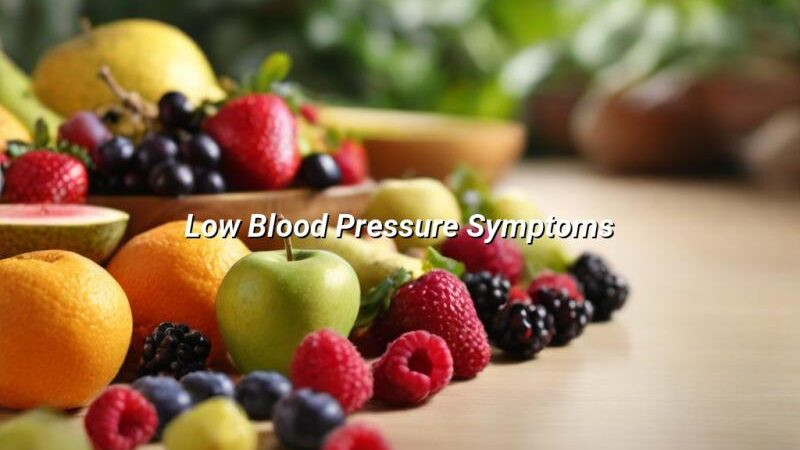What Causes A Slow Metabolism ?

How Genetics Affects Metabolism
Hey everyone!
Today we’re going to talk about how genetics affects metabolism. Metabolism is the process by which your body converts food into energy. It’s an incredibly complex process that involves a lot of different factors, including genetics.
Your genes play a huge role in how your body processes food and converts it into energy. For example, some people have a genetic predisposition to be more efficient at burning calories than others. This means that they can eat more food without gaining weight. On the other hand, some people have a genetic predisposition to be less efficient at burning calories, which can lead to weight gain.
Genetics also affects how quickly your body breaks down certain nutrients. For example, some people have a genetic predisposition to break down carbohydrates more quickly than others. This can lead to higher blood sugar levels and an increased risk of diabetes.
Finally, genetics can also affect how quickly your body stores fat. Some people have a genetic predisposition to store fat more quickly than others. This can lead to weight gain and an increased risk of obesity.
So, as you can see, genetics plays a huge role in how your body processes food and converts it into energy. It’s important to be aware of your own genetic predispositions so that you can make informed decisions about your diet and lifestyle.
Thanks for reading!
The Role of Stress in Slowing Metabolism
Do you ever feel like you’re stuck in a rut when it comes to your metabolism? You’re eating healthy and exercising regularly, but you’re still not seeing the results you want? Well, it could be that stress is slowing down your metabolism.
Stress is a normal part of life, but when it becomes chronic, it can have a negative impact on your health. One of the ways it can affect you is by slowing down your metabolism. When you’re stressed, your body releases the hormone cortisol, which can cause your body to store fat and burn fewer calories. This can lead to weight gain and make it harder to lose weight.
In addition to weight gain, chronic stress can also lead to fatigue, insomnia, and digestive issues. All of these can further slow down your metabolism and make it harder to lose weight.
So, what can you do to combat the effects of stress on your metabolism? The first step is to identify the sources of stress in your life and find ways to manage them. This could include things like yoga, meditation, or even just taking a few minutes each day to relax and unwind.
You should also make sure you’re getting enough sleep and eating a balanced diet. Eating a healthy diet can help to boost your metabolism and give you the energy you need to stay active.
Finally, make sure you’re getting regular exercise. Exercise can help to reduce stress levels and boost your metabolism. It can also help to improve your mood and give you more energy.
Stress can have a negative impact on your metabolism, but with the right strategies, you can combat its effects and get your metabolism back on track.
The Impact of Diet on Metabolism
Welcome to the world of metabolism! It’s an exciting and complex process that affects everything from your energy levels to your weight. But did you know that your diet can have a major impact on your metabolism? Let’s take a look at how the food you eat can affect your metabolism.
First, it’s important to understand what metabolism is. Metabolism is the process by which your body converts food into energy. This energy is then used to power your cells, tissues, and organs. Your metabolism is affected by a variety of factors, including your age, gender, and activity level.
Now, let’s talk about how your diet affects your metabolism. Eating a balanced diet that includes plenty of fruits, vegetables, whole grains, and lean proteins can help boost your metabolism. Eating a diet that is high in processed foods, sugar, and unhealthy fats can slow down your metabolism.
Eating smaller, more frequent meals can also help boost your metabolism. Eating smaller meals throughout the day can help keep your metabolism running at a steady pace. Eating larger meals less often can cause your metabolism to slow down.
Finally, drinking plenty of water can help keep your metabolism running smoothly. Water helps your body break down food and absorb nutrients more efficiently. It also helps flush out toxins and waste from your body.
So, as you can see, your diet can have a major impact on your metabolism. Eating a balanced diet, eating smaller meals more often, and drinking plenty of water can all help keep your metabolism running smoothly. So, if you want to keep your metabolism running at its best, make sure you’re eating right and staying hydrated!
The Effects of Age on Metabolism
Hey everyone!
Today we’re going to talk about the effects of age on metabolism. As we age, our metabolism naturally slows down, which can lead to weight gain and other health issues. But why does this happen?
Well, the main reason is that our bodies become less efficient at burning calories as we age. This is because our muscle mass decreases and our hormones change. Our bodies also become less efficient at breaking down food, which means we don’t get as much energy from the food we eat.
Another factor is that our activity levels tend to decrease as we age. We may not be as active as we once were, which means we’re burning fewer calories. This can lead to weight gain and other health issues.
So what can we do to combat the effects of aging on our metabolism?
First, it’s important to stay active. Exercise can help keep our metabolism running at a higher rate. It’s also important to eat a balanced diet that includes plenty of fruits, vegetables, and lean proteins. This will help ensure that our bodies are getting the nutrients they need to stay healthy.
Finally, it’s important to get enough sleep. Sleep helps our bodies recover and recharge, which can help keep our metabolism running at a higher rate.
So there you have it! Age can have an effect on our metabolism, but there are things we can do to help keep it running at a higher rate. Stay active, eat a balanced diet, and get enough sleep to help keep your metabolism running at its best.
The Role of Exercise in Boosting Metabolism
Exercise is a great way to boost your metabolism and keep your body healthy. It can help you burn calories, build muscle, and improve your overall health. But how exactly does exercise help to boost your metabolism?
First, exercise helps to increase your body’s resting metabolic rate. This is the amount of energy your body uses to perform basic functions like breathing and digesting food. When you exercise, your body needs to use more energy to perform the activity, which increases your resting metabolic rate. This means that even when you’re not exercising, your body is still burning more calories than it would if you weren’t exercising.
Second, exercise helps to build muscle. Muscle is more metabolically active than fat, meaning it requires more energy to maintain. This means that the more muscle you have, the more calories your body will burn even when you’re not exercising.
Finally, exercise helps to improve your overall health. Regular exercise can help to reduce your risk of chronic diseases like heart disease and diabetes. It can also help to reduce stress and improve your mood. All of these things can help to boost your metabolism and keep your body healthy.
So, if you’re looking for a way to boost your metabolism and keep your body healthy, exercise is a great option. It can help to increase your resting metabolic rate, build muscle, and improve your overall health. So, get out there and get moving!





